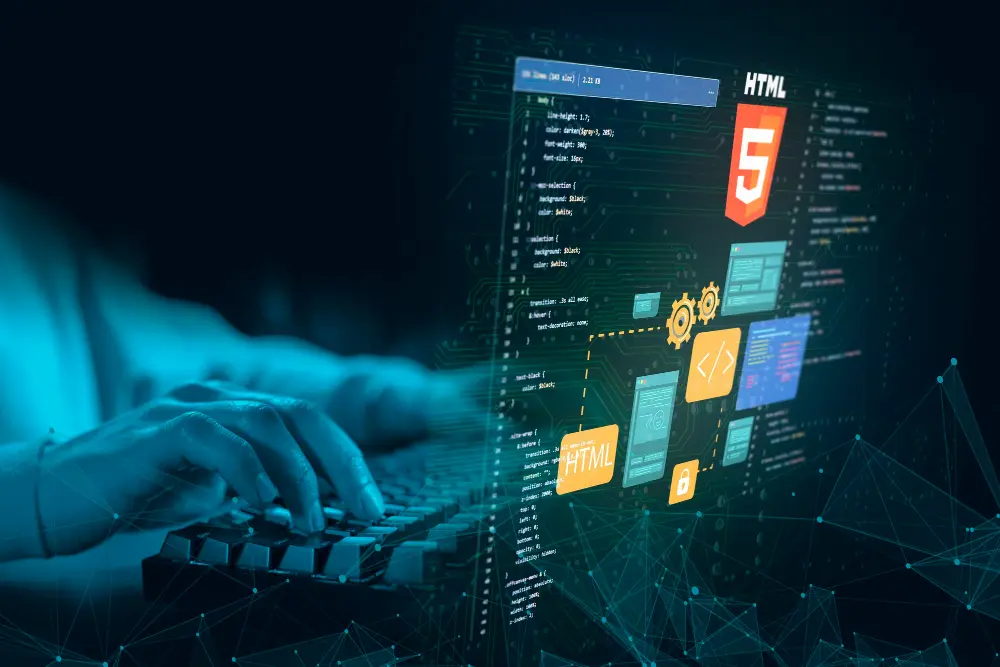Introduction
In the ever-evolving tech landscape, innovation and rapid problem-solving are critical skills. Hackathons, intense coding competitions often held over a single day or weekend, have become a staple in the tech community. These events bring together programmers, designers, and other tech enthusiasts to collaborate on projects, solve real-world problems, and showcase their skills. The Million Coders initiative by Airtics Education, in collaboration with Acacia University, recognizes the value of such hands-on experiences in building tech careers and offers programs that prepare participants to excel in hackathons and beyond. This blog explores how hackathons help in building careers and skills and why they are an essential part of the tech ecosystem.
What Are Hackathons?
Hackathons are marathon events where teams of developers, designers, and other tech professionals come together to create functioning software or hardware projects within a limited timeframe. These events can range from small, local gatherings to large, international competitions. The primary goal of a hackathon is to foster creativity, collaboration, and rapid problem-solving.
1. The Structure of Hackathons:
Hackathons typically begin with an introductory session where participants are briefed on the event’s theme or specific challenges. Teams are then formed, either pre-registered or created on the spot. Over the next 24 to 48 hours, these teams work intensively on their projects, often staying up all night. The event concludes with a series of presentations where each team demonstrates their project to a panel of judges and other participants.
2. Diverse Themes and Challenges:
Hackathons can focus on a wide range of topics, including healthcare, education, finance, social good, and more. Some hackathons are open-ended, allowing participants to work on any project of their choice, while others have specific themes or challenges set by the organizers or sponsors.
Skill Development Through Hackathons
Participating in hackathons offers numerous benefits, particularly in skill development. These events provide a unique environment where participants can enhance their technical abilities, learn new tools and technologies, and improve their soft skills.
1. Technical Skill Enhancement:
Hackathons push participants to learn and apply new technologies quickly. Whether it’s a new programming language, framework, or tool, the time-constrained nature of hackathons encourages rapid learning and experimentation. This hands-on experience is invaluable, as it allows participants to apply theoretical knowledge in a practical setting.
2. Problem-Solving and Creativity:
Hackathons challenge participants to think creatively and solve problems efficiently. The constraints of time and resources force teams to find innovative solutions and make quick decisions. This ability to think on one’s feet and develop creative solutions is highly prized in the tech industry.
3. Collaboration and Teamwork:
Working in teams is a core component of hackathons. Participants must collaborate effectively, leveraging each team member’s strengths to achieve a common goal. This experience builds teamwork, communication, and project management skills, which are essential in any professional setting.
4. Presentation and Pitching Skills:
At the end of a hackathon, teams must present their projects to judges and peers. This requires clear communication, persuasive storytelling, and the ability to convey complex technical concepts in an understandable way. These presentation skills are crucial for career advancement, whether it’s pitching an idea to a potential investor or presenting a project to a team.
Networking and Career Opportunities
Hackathons are not just about coding; they are also about building connections and opening doors to new opportunities.
1. Meeting Industry Professionals:
Hackathons often attract a diverse group of participants, including industry professionals, recruiters, and experts. This creates a valuable networking opportunity where participants can make connections that could lead to job offers, mentorship, or collaborations.
2. Showcasing Talent:
For students and early-career professionals, hackathons are an excellent platform to showcase their skills and projects. Employers and sponsors often scout for talent at these events, offering internships, jobs, or freelance opportunities to standout participants.
3. Building a Portfolio:
The projects created during hackathons are tangible proof of one’s abilities. These projects can be added to a portfolio, providing concrete examples of problem-solving skills, technical proficiency, and creativity. A strong portfolio can significantly enhance job prospects.
Success Stories and Real-World Impact
Many successful startups and projects have emerged from hackathons. These events serve as incubators for innovative ideas and provide a launchpad for entrepreneurs.
1. From Hackathon to Startup:
Several well-known companies, such as GroupMe and Zapier, started as hackathon projects. The intense focus and collaborative environment of hackathons can lead to the development of viable products that address real-world problems.
2. Social Impact Projects:
Hackathons often encourage participants to work on projects that address social issues. This can lead to the creation of technologies that make a positive impact on communities, such as apps for disaster response, educational tools, or healthcare solutions.
The Role of Million Coders in Preparing for Hackathons
The Million Coders initiative by Airtics Education, in collaboration with Acacia University, offers comprehensive programs that equip participants with the skills and knowledge needed to excel in hackathons and beyond. Through courses in languages like C#, Java, Python, R, and JavaScript, and specializations in areas such as Unity Game Development, Android Development, Web & AR/VR Development, Blockchain, Data Science, AI, and ML, Million Coders provides a solid foundation for aspiring tech professionals.
1. Practical, Industry-Relevant Training:
Million Coders emphasizes hands-on learning and real-world application of skills. This approach ensures that participants are well-prepared to tackle the challenges presented in hackathons and other competitive environments.
2. Certification and Credibility:
With program certification from Acacia University, participants of Million Coders gain a recognized and respected credential that enhances their employability and credibility in the tech industry.
3. Global Community and Support:
Million Coders creates a global community of learners and professionals. This network provides support, mentorship, and collaboration opportunities, further enhancing the learning experience and career prospects.
Conclusion
Hackathons are an invaluable experience for anyone looking to build a career in technology. They offer a unique combination of skill development, networking, and real-world problem-solving that is hard to find elsewhere. Participating in hackathons can significantly enhance one’s technical abilities, teamwork, and professional network, leading to new opportunities and career growth. The Million Coders initiative by Airtics Education provides the training and support needed to excel in these competitive environments, making it an excellent resource for aspiring tech professionals. Whether you are a student, a budding entrepreneur, or a seasoned professional, participating in hackathons and leveraging programs like Million Coders can be a game-changer in your career journey. Join Million Coders today and take the first step towards mastering the skills and seizing the opportunities that hackathons offer.

